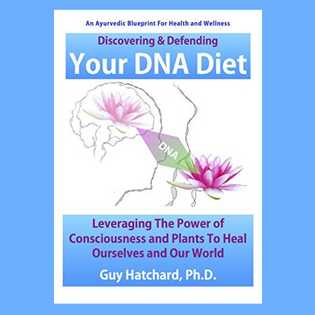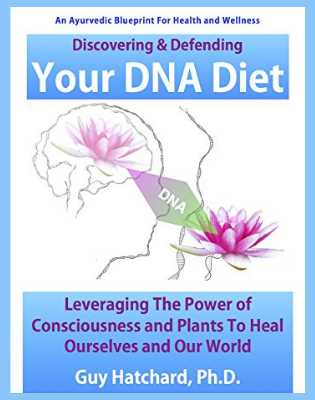Behind the concerns of a New Zealand Ministry of Health database analyst, which led him to become a whistleblower and land up in the courts, are some very serious scientific questions indeed. These relate to the health outcomes of ordinary New Zealanders and call into doubt the integrity of Medsafe and Te Whatu Ora (Ministry of Health).
This article is also available as a PDF document that you can print, download, and share. An audio version is available here.
It now appears clear from the comments of Margie Apa, CEO of Te Whatu Ora (who has a degree in public admin), that the unprecedented record high rate of New Zealand excess deaths is no longer being vigorously denied. Rather, she has assured the public:
“There is no evidence whatsoever that vaccination is responsible for excess mortality in New Zealand.”
Margie Apa
At the basis of the Te Whatu Ora and Medsafe claims of COVID-19 vaccine safety is an assumption that Covid vaccines do not have any long term adverse effects. Medsafe Safety Reports (now over a year out of date) assert that the mortality rate of COVID-19 vaccine recipients during the 21 days after vaccination is lower than what you would expect in the general population. They are only looking at the three weeks following vaccination and no further.
Yet the latest available official figures put the average number of excess deaths (the number in excess of the long term average) at 14 extra deaths per day.
That makes an additional unexpected 775 deaths during the latest reported eight week period alone.
775 individual people now unexpectedly and prematurely lost to their families and communities. A massive 14.4% above the long term average.
Four years ago, this would have been considered a national disaster. Today, we are being assured that something other than the COVID-19 vaccine is responsible, but we are not being told what it is. We have long since moved on from peak Covid, so what is happening? Apparently, no one wants to talk about it.
But you don’t have to look very far into recent scientific findings about Covid to find that the assumption that there are no long term COVID-19 vaccine adverse effects is simply and obviously disproven. If you read our reports, you will be aware of many studies demonstrating risks. So, how big are the risks?
A study completed in Japan entitled “Assessment of Myocardial 18F-FDG Uptake at PET/CT in Asymptomatic SARS-CoV-2–vaccinated and Nonvaccinated Patients assesses the risk of long term cardiac damage in patients who had no initial myocarditis symptoms. The research found that the risks are disturbingly high.
The retrospective study looked at the treatment records of 700 vaccinated and 303 unvaccinated male and female subjects with an average age in their fifties who had undergone tests to measure their uptake of a form of glucose in the heart muscle (myocardium) using PET/CT scans. The researchers found that those who had taken the COVID-19 vaccine had a significantly higher uptake of glucose into their myocardium than the unvaccinated.
This is concerning because the human heart prefers fatty acids as a fuel over glucose. Distressed heart cells take up more glucose. Hence, the study suggests that vaccinated individuals have a significantly increased risk of long term heart damage. Cardiologist Dr. Peter McCullough interpreted the study to support:
A single vaccine shot causes a 2.5% risk of long term heart damage. Those who got two shots have an 8% risk.
The study concluded: “When compared with non-vaccinated patients, asymptomatic patients who received their second vaccination 1–180 days prior to imaging showed increased myocardial 18F-FDG uptake on PET/CT scans.” In more simple language, even those people of all ages and both sexes who had no noticeable adverse symptoms following COVID-19 vaccination end up with a significantly increased risk of long term cardiac damage.
This has obvious implications for Medsafe data collection and assessment. Medsafe should have looked at health outcomes over a much longer time frame than 21 days, at least 180 days according to this study, and almost certainly much longer. The Ministry of Health whistleblower published data of suspiciously high death rates in the months after COVID-19 vaccination for precisely this reason. He wanted to highlight the way that his employer, the Ministry of Health, was glossing over suspicious deaths, not just one or two deaths but thousands, around 10,000 so far.
More concerning is the fact that the Japanese study is only looking at one possible adverse effect of COVID-19 vaccination. A rapidly growing number of recently published scientific papers we have been regularly reporting are pointing to a wide range of other long-term mRNA Covid harms, including immune deficiency, cancers, inflammatory musculoskeletal disorders, strokes, and mental illness.
Distressingly, the media, the government, and Te Whatu Ora have failed to address the substance of the whistleblower’s concerns and the valid scientific reasons to acknowledge them.
Instead, he has been charged in court with the offence of “dishonestly accessing vaccination data”. None of them have told the public that accessing vaccination data was actually his job at the Ministry of Health. He was doing his job, spotted a concerning red flag, and went public after much heart searching about the inaction of his employer, whose job it is to protect public health.
I am receiving a number of communications from individuals who are in personal touch with their local MPs. It is a common report that their MP is now quite sure they will not be getting another jab, but doesn’t want to rock the boat by raising the issue of vaccine safety in caucus. Their excuse: they are unsure of their ability to present the science.
Meanwhile, Te Whatu Ora is rocking on telling the public from 30 years old upwards and from 12 years up in some categories, they need to get another shot with the tired refrain:
“Vaccination is safe and effective,….Covid-19 is still in our communities and is a significant risk – so please protect yourself, your whānau, and your community by getting immunised.”
No mention of record levels of adverse effects, known lack of effectiveness of the vaccine, and the many recently completed studies highlighting the long term risks, including ironically that the vaccine can actually increase your risk of Covid viral persistence.
The whistleblower crisis is rapidly becoming a test of the new government’s ability to move on from the past three years of censorship and gaslighting.
Our national health records are now out on the international public stage. How the government responds to this crisis will tell us a lot more about their real intentions and their capacity or lack of capacity to think things through rationally in the public interest.






